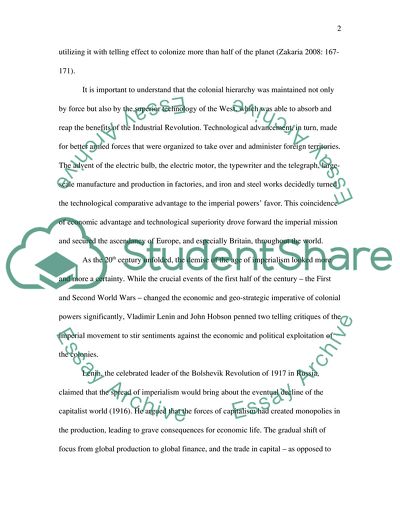Cite this document
(Imperial Power and the Post-Colony: A Changing Relationship After Coursework, n.d.)
Imperial Power and the Post-Colony: A Changing Relationship After Coursework. Retrieved from https://studentshare.org/politics/1723598-what-how-and-to-what-extent-did-the-relationship-between-the-former-imperial-power-and-thier-colonies-change-after-independence
Imperial Power and the Post-Colony: A Changing Relationship After Coursework. Retrieved from https://studentshare.org/politics/1723598-what-how-and-to-what-extent-did-the-relationship-between-the-former-imperial-power-and-thier-colonies-change-after-independence
(Imperial Power and the Post-Colony: A Changing Relationship After Coursework)
Imperial Power and the Post-Colony: A Changing Relationship After Coursework. https://studentshare.org/politics/1723598-what-how-and-to-what-extent-did-the-relationship-between-the-former-imperial-power-and-thier-colonies-change-after-independence.
Imperial Power and the Post-Colony: A Changing Relationship After Coursework. https://studentshare.org/politics/1723598-what-how-and-to-what-extent-did-the-relationship-between-the-former-imperial-power-and-thier-colonies-change-after-independence.
“Imperial Power and the Post-Colony: A Changing Relationship After Coursework”. https://studentshare.org/politics/1723598-what-how-and-to-what-extent-did-the-relationship-between-the-former-imperial-power-and-thier-colonies-change-after-independence.


